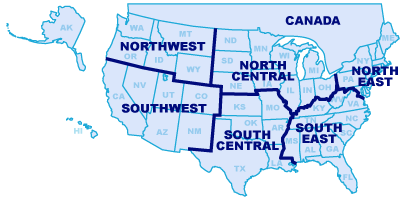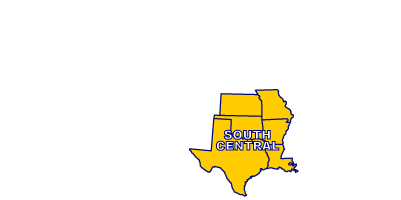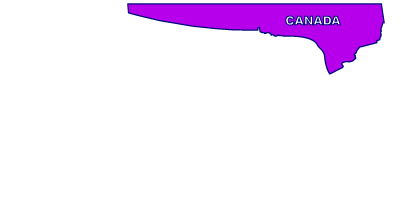Christian Colleges with Counseling Degrees
By clicking on the "Continue" and/or "Submit Request" button(s) on this form I am providing my electronic/ESIGN signature and agreement of expressed written consent to permit The Christian Connector, Inc. and the schools selected, and the parties calling/texting on behalf of the schools, to contact me at the phone number I provide for marketing purposes, including through the use of automated technology, SMS/MMS messages, and prerecorded/artificial/AI generated voice calls about education related opportunities. Message and data rates may apply. I understand that my consent is not required to obtain any goods or services from The Christian Connector or any of the colleges/universities. I acknowledge that I may select as many, or as few, schools as I wish to receive information from. I agree to the terms and privacy policy as well. I understand I can call 800-667-0600 to request information without providing any phone number.
Click on the map below to bring schools in the selected region to the top of the list:









Articles on Counseling:
Major in Counseling at Christian Colleges
Article by Rachelle Wiggins
“The words of the godly are a life-giving fountain.” ~Proverbs 10:11
Counseling is a cooperative process in which a trained professional assists a client in recognizing and moving through personal sources of stress, difficulty or concern. The goal of counseling is to motivate and educate clients to make positive behavioral changes in order to accomplish specific life goals and/or improve overall mental health. Counselors deal with issues like depression, anxiety, grief/loss, family conflict, job stress, athletic pressure and difficulty in aging. In this major you will learn about counseling techniques and wide-ranging methodologies such as cognitive-behavioral, psychodynamic, narrative-focused and client-centered therapy. You will begin to understand how to help people with complex issues like substance abuse, eating disorders, mental illness, addictions, self-harm, ADHA and low self-esteem. You will gain skills in stress management, active listening, decision-making, conflict-resolution and assessing complicated relational dynamics. Whether you end up counseling children, teens, married couples, families or individuals, and whether you work in a school, rehab center, cooperate setting, counseling office or private practice you will begin to understand yourself better, as well as the people around you.
Psychology majors are generally people-oriented. Typically, these are the individuals inquisitive about the personalities of those around them, who notice patterns in behavior and crave knowledge about how the mind works. But it takes more than an interest in social interaction to succeed in this relatively new college major. In a field where application of knowledge must be wisely shared and assessments must be accurate, critical thinking is a must. It is helpful to be a creative and flexible problem-solver, able to lay out achievable, measurable objectives. If your ultimate goal is to become a counselor or therapist, it is imperative to possess traits of compassion, helpfulness and patience in order to empathetically walk clients through a process of self-discovery and gradual behavioral change. This one-on-one teaching of life skills sometimes requires time and persistent dedication, as well as good communication (both verbal and nonverbal). Finally, it is important to be self-aware, emotionally healthy and to have strong coping skills in a career where stress and high burn out are expected.
So, what are some of the classes you can expect to take as a counseling major? Once your general credits are complete, you will take an array of psychology courses like Abnormal, Social, and Child Psychology. You may spend time doing research and conducting some sort of internship or senior project. Other classes you may encounter are:
- Methods of counseling
- Group dynamics
- Prevention and crisis intervention
- Statistics
- Personality theories
- Survey of social problems
- Human behavior and environment
- Interpersonal communication
Counseling is a diverse major with all sorts of specializations and career outcomes. Some specializations you might narrow in on include: guidance counseling, gerontology, marriage and family therapy, human services, substance abuse and art or play therapy. In order to become a licensed therapist or counselor, an advanced degree (at least master’s level) is required. Students graduating with a bachelor’s degree in counseling may find employment in other fulfilling roles:
- Social worker/case manager
- Career counselor
- Human services educator
- Rehab specialist
- Addictions counselor
- Mental health technician
People will always have emotional needs. Recent trends show that the job of mental health counselor is projected to rise by 23% over the next decade--far above the average employment growth rate. If you enjoy building rapport with people and desire to instill hope and act as an advocate in the lives of future clients, then a major in counseling might be the perfect fit for you!
A Future in Psychology
By Jennifer Bailey
Are you passionate about people? A natural problem solver who thrives on making a difference in others’ lives in a big way? Clearly, many people are, as psychology is one of the top five most popular college majors. Sometimes the results are not seen right away. You must be patient and be able to offer what you can to others and not take it personally if your advice is not accepted in the moment. It takes a special person to commit to this important line of work long term.
If your dream is to become a licensed psychologist, you will definitely need to obtain your master’s degree at minimum; however, if you simply have a casual interest of the human mind and behaviors, this degree will help you excel in a variety of career paths.
Some of the most important things you will learn during your undergraduate years are interpersonal and strong communication skills. You will spend a good amount of time developing solid research and writing skills. Each of these things will be useful in nearly every profession. Specifically, with this major, you will gain the ability to assess client needs and keep thorough and accurate records. Innately, you should naturally have the tendency to express care and empathy as well as a desire to act as an advocate for others.
Most students graduating with a bachelor's degree will work in some division of human or social services. Some common jobs in the field include: social services/case management, career counselor or rehabilitation specialist. However, you can also use a bachelor’s in psychology in many other career areas such as top and mid-level management and administration, labor-relations, personnel and staff training and development, real estate, insurance, sales, marketing, library assistant or probation officer. Those who meet state certification requirements may even become high school psychology teachers.
You will find the biggest advantage of obtaining a bachelor's degree in psychology is its adaptability into a myriad of career options.
According to the U.S. Department of Labor, the job outlook for psychologists is expected to grow at an average rate over the next decade. The need for psychological services in hospitals, schools, private businesses, social service agencies and mental health centers is expected to drive this growth.